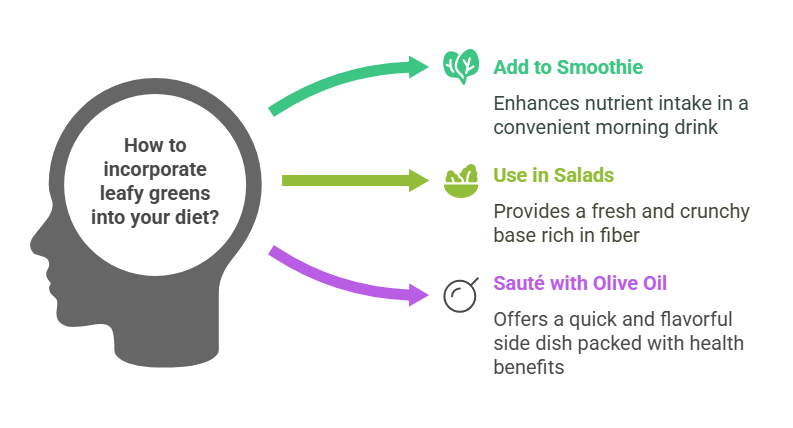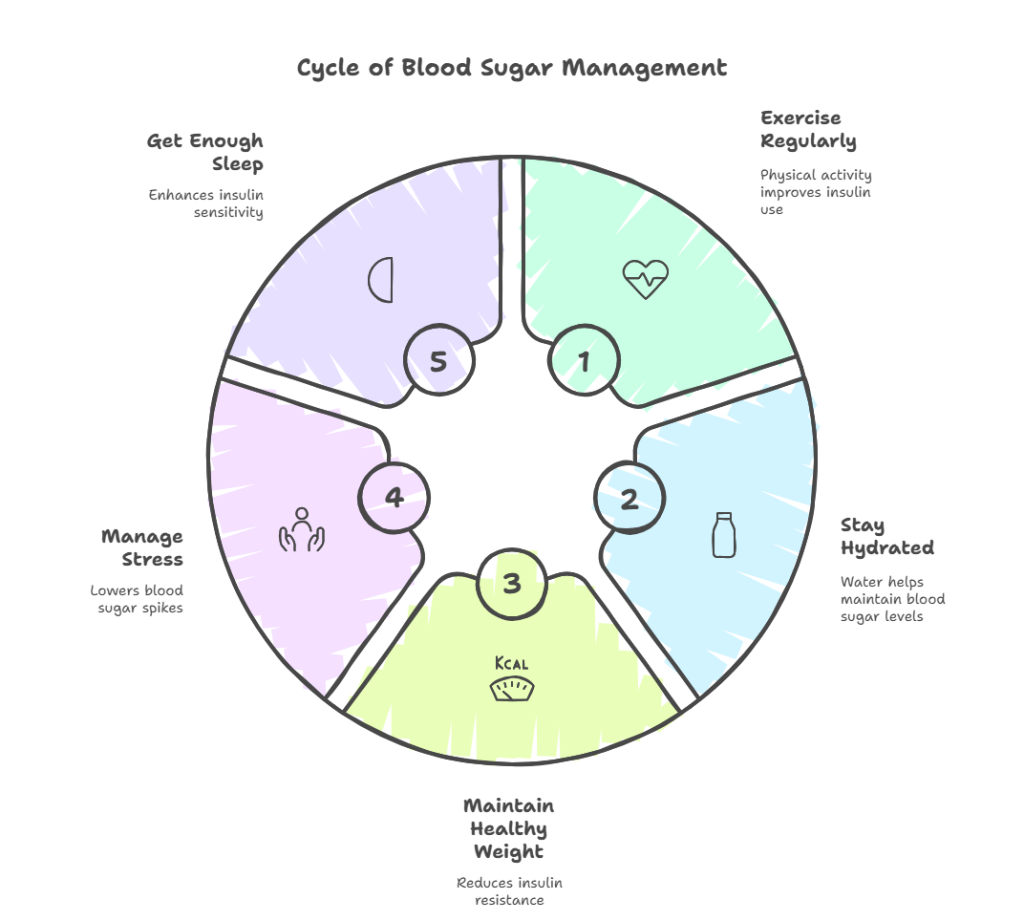Maintaining healthy blood sugar levels is crucial for overall well-being, especially for individuals living with diabetes or those at risk of developing the condition. Uncontrolled blood sugar levels can lead to a range of serious health problems, including heart disease, kidney issues, and nerve damage. One of the most effective ways to manage blood sugar levels is through a balanced diet that includes foods that help regulate and reduce blood sugar levels.
At Raj Hospitals, we understand the importance of a healthy diet in managing blood sugar levels. Our expert team of doctors and dietitians work with patients to create personalized nutrition plans that focus on foods that help maintain stable blood sugar levels. In this blog, we will explore various foods that can help reduce blood sugar levels, along with practical tips on incorporating them into your daily diet.
Understanding Blood Sugar Levels
Before we dive into the foods that can help reduce blood sugar levels, it’s important to understand what blood sugar is and why it’s so important to keep it in check.
Blood sugar, or glucose, is the main source of energy for the body. After we eat, our digestive system breaks down carbohydrates into glucose, which enters the bloodstream. The hormone insulin, produced by the pancreas, helps regulate the amount of glucose in the blood by facilitating its uptake into cells for energy. However, when insulin is not functioning properly or when the body becomes resistant to insulin (a condition known as insulin resistance), blood sugar levels can rise to unhealthy levels, leading to diabetes.
Foods That Help Reduce Blood Sugar Levels
The good news is that several foods can help regulate blood sugar levels naturally. Including these foods in your diet can help keep your blood sugar stable and prevent spikes or crashes. Here are some of the best foods to help reduce blood sugar levels:
1. Leafy Green Vegetables

Leafy green vegetables, such as spinach, kale, and Swiss chard, are packed with nutrients and low in carbohydrates, making them an excellent choice for managing blood sugar levels. These vegetables are rich in fiber, which helps slow the absorption of sugar into the bloodstream, preventing rapid spikes in blood sugar.
How to incorporate them into your diet:
- Add spinach or kale to your morning smoothie.
- Use leafy greens as a base for salads.
- Sauté them with olive oil and garlic for a quick and healthy side dish.
2. Whole Grains
Whole grains like oats, quinoa, brown rice, and whole wheat bread are high in fiber and have a lower glycemic index (GI) compared to refined grains. The glycemic index measures how quickly a food raises blood sugar levels. Foods with a low GI help maintain steady blood sugar levels.
How to incorporate them into your diet:
- Swap white rice for brown rice or quinoa.
- Enjoy a bowl of oatmeal for breakfast.
- Choose whole wheat bread or pasta over white bread and pasta.
3. Nuts and Seeds
Nuts and seeds, such as almonds, walnuts, chia seeds, and flaxseeds, are rich in healthy fats, protein, and fiber. These nutrients help regulate blood sugar by slowing the absorption of glucose and improving insulin sensitivity.
How to incorporate them into your diet:
- Snack on a handful of almonds or walnuts.
- Add chia seeds or flaxseeds to your smoothies, yogurt, or oatmeal.
- Use nut butter (like almond or peanut butter) on whole grain toast or as a dip for fruits and vegetables.
4. Berries
Berries, including strawberries, blueberries, raspberries, and blackberries, are low in sugar and high in antioxidants, vitamins, and fiber. They have a low glycemic index and can help reduce inflammation, which is important for managing blood sugar levels.
How to incorporate them into your diet:
- Enjoy a bowl of fresh berries as a snack.
- Add berries to your smoothies, yogurt, or cereal.
- Use frozen berries in baking or as a topping for pancakes and waffles.
5. Cinnamon
Cinnamon is a spice that has been shown to help lower blood sugar levels by increasing insulin sensitivity. It can also slow the breakdown of carbohydrates in the digestive system, which helps prevent blood sugar spikes after meals.
How to incorporate it into your diet:
- Sprinkle cinnamon on your oatmeal, yogurt, or smoothies.
- Add cinnamon to baked goods or use it in savory dishes like curries and stews.
- Try cinnamon tea as a healthy and flavorful beverage.
6. Avocados
Avocados are an excellent source of healthy monounsaturated fats, which can help improve insulin sensitivity and regulate blood sugar levels. They are also low in carbohydrates, making them a great food choice for individuals with diabetes.
How to incorporate them into your diet:
- Enjoy sliced avocado on whole grain toast.
- Add avocado to salads, sandwiches, or wraps.
- Make guacamole for a healthy dip.
7. Beans and Legumes
Beans, lentils, and chickpeas are high in fiber, protein, and complex carbohydrates, which help slow the absorption of glucose and prevent blood sugar spikes. They are also a great source of magnesium, which plays a role in regulating blood sugar levels.
How to incorporate them into your diet:
- Add beans to salads, soups, or stews.
- Make a chickpea salad or hummus for a nutritious snack.
- Enjoy lentils or black beans as a side dish with your main meal.
8. Garlic
Garlic has been shown to have several health benefits, including the ability to help lower blood sugar levels. It contains compounds that improve insulin sensitivity and may help reduce inflammation, which is important for managing diabetes.
How to incorporate it into your diet:
- Add garlic to your cooking, such as in soups, stews, stir-fries, and sauces.
- Roast whole garlic cloves and enjoy them as a flavorful side dish.
- Make garlic-infused olive oil to use as a dressing for salads and vegetables.
9. Apple Cider Vinegar
Apple cider vinegar has been shown to help lower blood sugar levels by improving insulin sensitivity and slowing the absorption of sugar from the digestive system. It may also help with weight management, which is important for controlling blood sugar.
How to incorporate it into your diet:
- Mix 1-2 tablespoons of apple cider vinegar with water and drink it before meals.
- Use apple cider vinegar as a salad dressing.
- Add it to marinades for meat and vegetables.
10. Turmeric
Turmeric, a bright yellow spice commonly used in Indian cooking, contains an active compound called curcumin, which has powerful anti-inflammatory and antioxidant properties. Curcumin has been shown to help reduce blood sugar levels and improve insulin resistance.
How to incorporate it into your diet:
- Add turmeric to soups, stews, and curries.
- Make a warm cup of golden milk (milk with turmeric, black pepper, and honey).
- Use turmeric in smoothies, rice dishes, or roasted vegetables.
Lifestyle Tips for Managing Blood Sugar

While diet plays a critical role in managing blood sugar levels, it’s also important to adopt healthy lifestyle habits that can support your overall health. Here are some additional tips to help keep your blood sugar in check:
- Exercise Regularly: Physical activity helps the body use insulin more effectively, improving blood sugar control. Aim for at least 30 minutes of moderate exercise, such as walking, swimming, or cycling, most days of the week.
- Stay Hydrated: Drink plenty of water throughout the day to help maintain healthy blood sugar levels. Avoid sugary drinks, as they can cause spikes in blood sugar.
- Maintain a Healthy Weight: Losing excess weight, especially abdominal fat, can improve insulin sensitivity and reduce the risk of developing type 2 diabetes.
- Manage Stress: Chronic stress can raise blood sugar levels, so it’s important to find ways to relax. Practices like meditation, deep breathing, yoga, and spending time outdoors can help reduce stress.
- Get Enough Sleep: Poor sleep can affect insulin sensitivity and blood sugar levels. Aim for 7-9 hours of quality sleep each night.
Conclusion
Maintaining healthy blood sugar levels is essential for long-term health, and incorporating the right foods into your diet is one of the best ways to manage blood sugar. At Raj Hospitals, we encourage our patients to adopt a balanced and nutritious diet that includes foods that help regulate blood sugar levels.
If you’re struggling to manage your blood sugar or have been diagnosed with diabetes, don’t hesitate to reach out to our team of experts. We offer personalized care and nutrition counseling to help you make healthier choices and achieve better blood sugar control.
Take the first step toward a healthier you – visit Raj Hospitals for expert care and support in managing your blood sugar levels.
.svg)










